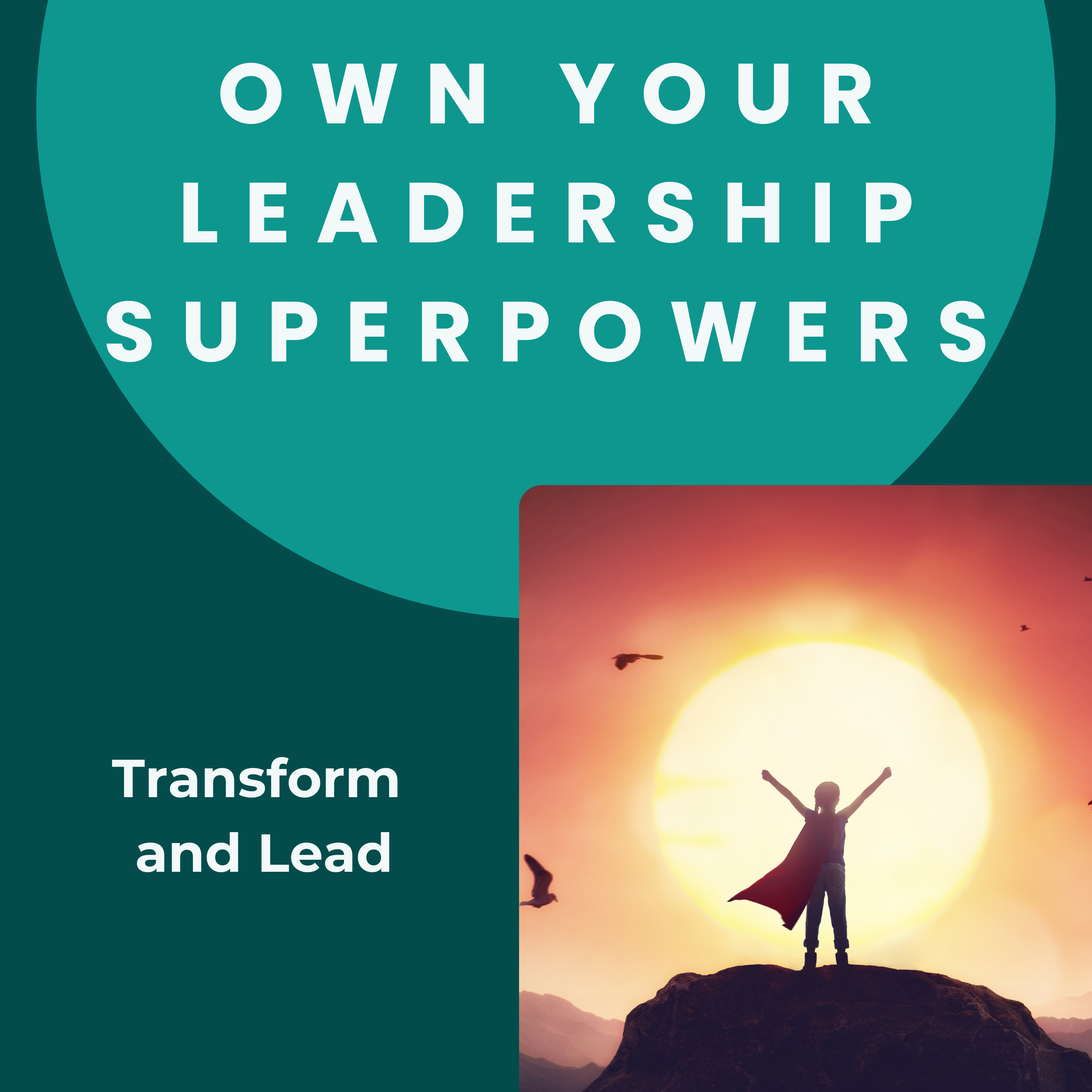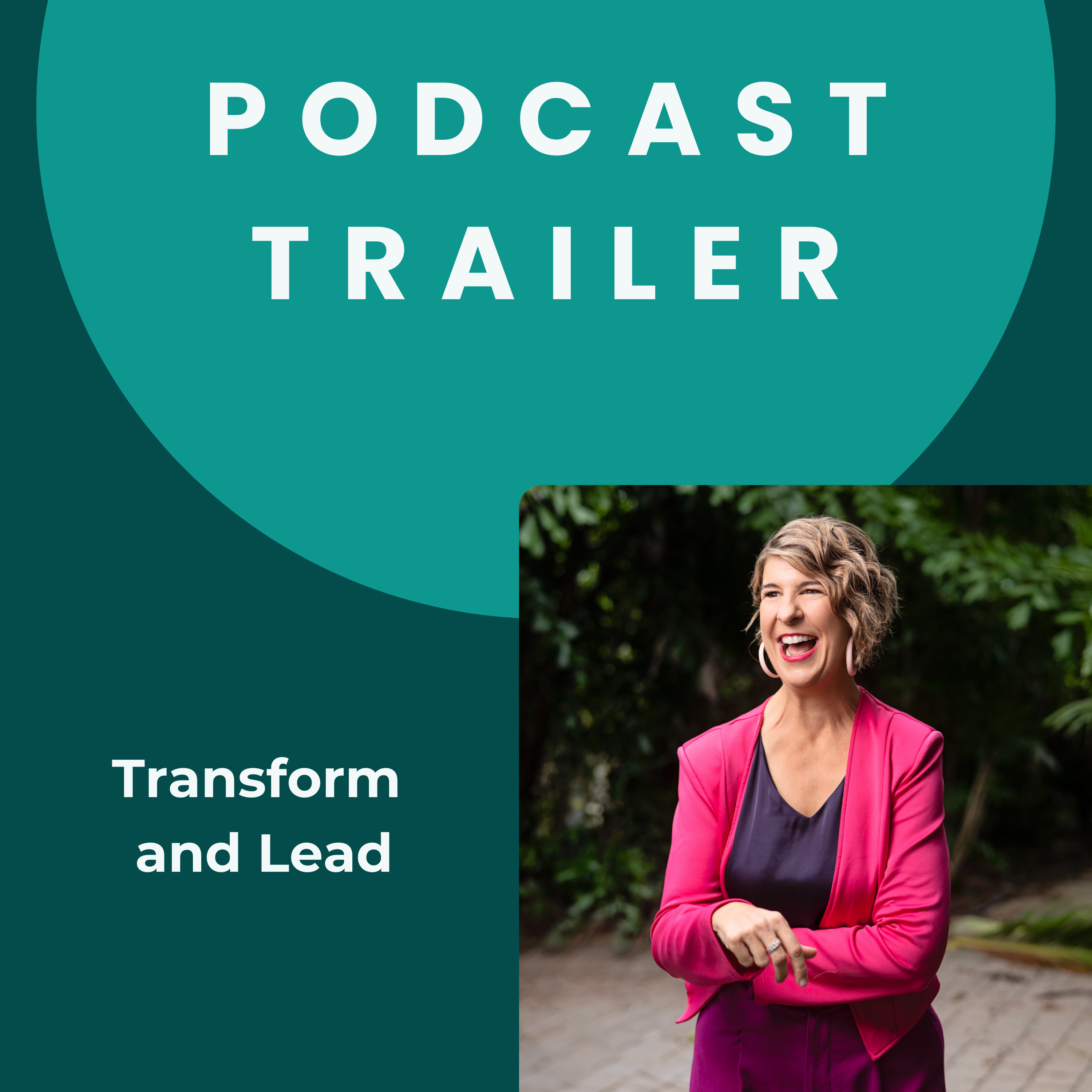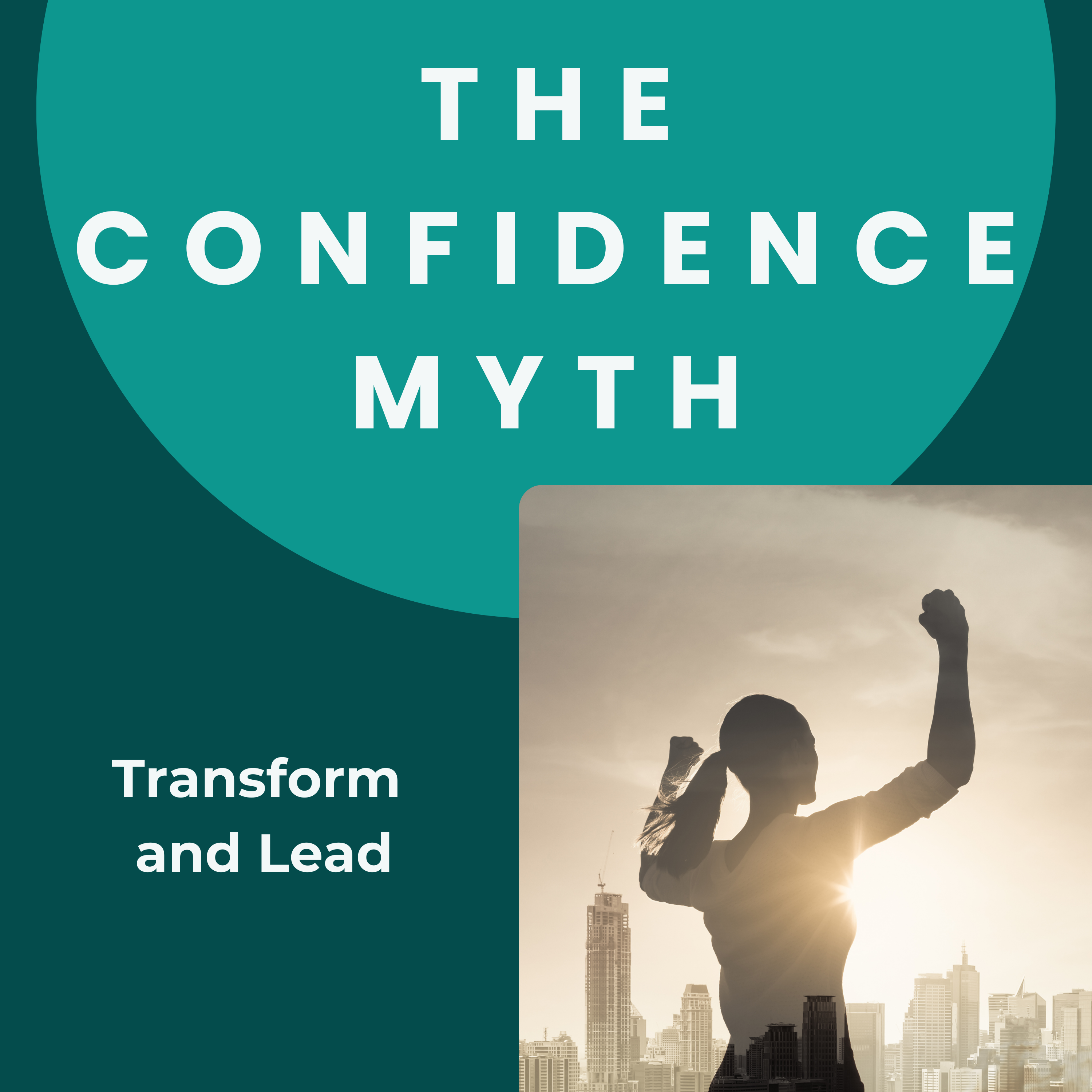Episode Transcript
[00:00:04] Speaker A: Welcome to Transform and Lead. I'm Bron Stephens, ex CEO turned executive coach, who is all about women, uplifting women. I know what it's like to question whether your way of leading is enough. You've worked hard, you're ambitious, and you want to do big things without having to fit into someone else's mold. This podcast is here to give you practical, powerful ways to own your ambition, femininity and power so that you can lead with confidence your way.
[00:00:28] Speaker B: Foreign let's talk about something that holds so many smart, strategic, brilliant women in place long after they've outgrown it. And that's the fear of loss.
Not because you're stuck, not because you don't know what you want, but because your brain is wired to hold on tighter than it needs to. And before we get into the science, I want to acknowledge something that I hear all the time from women in executive roles, and that's I'm lucky to have this flexibility. I'm lucky to earn what I do. I'm lucky they trust me with this. No, you are not lucky. You know that you are skilled, you are brilliant, you are strategic, and you've worked really hard to get to where you are.
But that quiet voice saying, don't rock the boat, you're lucky to have this is what makes so many women stay too long in roles, relationships, and environments that no longer serve them.
But here's the truth. You didn't win a raffle. You built this, and you can build it again.
It's not a mindset issue. It's behavioural psychology. Kahneman and Tversky showed that the pain of losing something is around twice as powerful as the joy of gaining something new.
So that means that you're more scared of losing something two times more scared of it than you are excited about getting something.
And so even if you know something isn't right anymore, a role, a project, a workplace, the thought of losing what you've built can feel paralyzing.
Sometimes we even get into the old all or nothing thinking, and we think the job market's terrible. I'll never get another job or I have to stay. I can't afford not to have a wage. But here's what I want you to hear. Making a decision doesn't mean you have to act immediately. You just have to decide and start to take steps towards it. That simple action is powerful. There is power in the decision because once you name it and once you see the pattern and the area that you're stuck in, you can stop leaking energy in that way you stop managing yourself into burnout just to protect something that's no longer aligned with you. And taking the first step to change is a step in the right direction and action and momentum follow.
So let's look at the patterns that it can quietly keep you playing small, even when everything on paper says you're winning.
The first bias is loss aversion. So we are wired to hate loss more than we love gain.
We've just talked about that and the fact that the pain of losing is twice as intense as the pleasure of winning. So when a woman's considering stepping out of a known role or quitting a board that's dragging her down, her brain starts sounding the alarm. What if you lose status? What if they stop inviting you in? What if you can't replicate this elsewhere? And that alarm keeps women stuck in rooms that they've well outgrown. And not because they lack clarity, but because they're smart, strategic, and most importantly, human.
The second bias is the sunk cost fallacy, and this one's a sneaky one. So you've already invested years, sacrificed evenings, worked double time after maternity leave, and now what? You walk away?
It doesn't feel logical.
But sunk costs don't predict future returns. Staying because you've already given so much, only guarantees that you're going to give more to something that's no longer right for you.
The third is the status quo bias, and this is the comfort trap. So familiar equals safe. Even if you're exhausted, uninspired or sidelined, better the devil you know becomes your quiet motto.
Your leadership isn't evolving, it's surviving. And you're not involving, growing or getting joy in your work.
Now you know about these. What are you going to do with them? Let's get a little bit practical here. Here's how to work through these patterns like the powerful woman that you are, not with over analysis, but with strategy and clarity.
This is what I work on with clients every week, the shift from self protection to self leadership.
So the first tool you can use here is run the decision through power based questions. So ask yourself, what's the cost of staying? Who am I becoming in this environment?
And if I was starting from scratch, would I choose this? Again, these questions cut through the noise and the heart of these biases. And they're designed to be sharp and they're designed to make you feel a little bit poked at as you work them through.
But as you do that, if you do feel poked and if your stomach does drop, it means you already know the Answer here.
The second tool is to use regret minimization.
So this is about avoiding drama. It's a simple consideration of future you. Ten years from now, what would that future you say?
What would they wish you'd done?
Would they have thought it was great that you stuck where you were? Or would they have wanted to see you do something exciting with your one wild and beautiful life?
And this one is just a great way to flip the frame. It stops you from catastrophizing and worrying about what the next six months are going to look like. And instead really starts to look at that long term view what matters in your whole of life, not in this single part of life. The third one is to try out a gain map instead of a risk register. And I love this one because something that women do really, really well is we assess risk, we're trained in it, we look for it, and we're constantly scanning environments for it. We've been socialized to prepare, predict, smooth over any and every potential issue that's coming up.
Instead of that, I want you to try listing everything that you stand to gain by leaving the thing that's no longer aligned.
Energy, creativity, peace, space to think, time to lead, Power, joy, balance, whatever it is that you're going to gain by no longer being in that environment that's holding you back.
The fourth tool here is an anchor to who you're becoming, not what you've done.
So if your identity is tied to the title, and so often it is, or the salary banned, or how hard you have to fight to get to where you are, you'll stay trapped in what's already built. And that is backward facing leadership. You would never run a business that way. You would always be looking to what's next. So you want to do the same for yourself. You want to anchor to the woman that you're becoming and the woman that you want to be. And that is someone who leads in alignment, who owns her value and her backs herself without needing proof. And the fifth and final tool here, decide what you need to feel safe enough to move.
So you might decide that you're not ready to move now because you're not safe to do so. And there's a whole heap of reasons that you may not be safe. So financially, emotionally, whatever it is, but this is a great tool to break it down and think about the first step and acknowledging that maybe it's not right where I am and I can't jump right now, but I can plan for this.
And this one especially comes up when people have core values and beliefs that mean that change is extra hard for them because they don't feel safe and because they feel like it's out of alignment. That doesn't mean that where they are is right, though.
And so if this is you make your first move by simply figuring out what you need to feel safe enough to move, what financial buffer, what emotional support, what lifestyle value, or what other thing do you need in your life to be in place so that you can make a move and then go and work on that as your starting point?
And I used this with one of my clients, and it took her a year to build the financial security she needed, but she named the requirement, and she also recognized that she wanted to not be where she was. And so once she hit that financial buffer, she freed herself to launch into something new. And now she's in a new role, she's getting promoted every 18 months, and she's absolutely thriving in this new environment.
There's power in starting, even if it's not the big jump off the bat.
So if you're feeling tired, disconnected, or like you're constantly managing your energy just to get through the week, this is your sign. This podcast is your little prompt to get going. And it's not because you're weak that you haven't been doing it. It's because your body and your brain are doing what they were designed to do and keep you safe. But keep you safe in a jungle where there's cheetahs and tigers chasing you, not keep you safe in the corporate world where burnout and misalignment are much more real risks to you than tigers and cheetahs are. And let's face it, leadership isn't about staying safe. It's about staying your power. You don't need to prove anything. You already are it. You don't need to cling to that lucky seat at the table. You are the value in that room. And at that table, you were never there by chance, and you've got the receipt to prove it. So the next room you step into, it's lucky to have you. You're not lucky.
If this podcast has given you something to think about, send it to a woman in your world who might need to hear it, too. And if you're ready to stop managing your energy and start owning leadership in a way that reflects who you are, come Visit me on LinkedIn. Let's talk.


